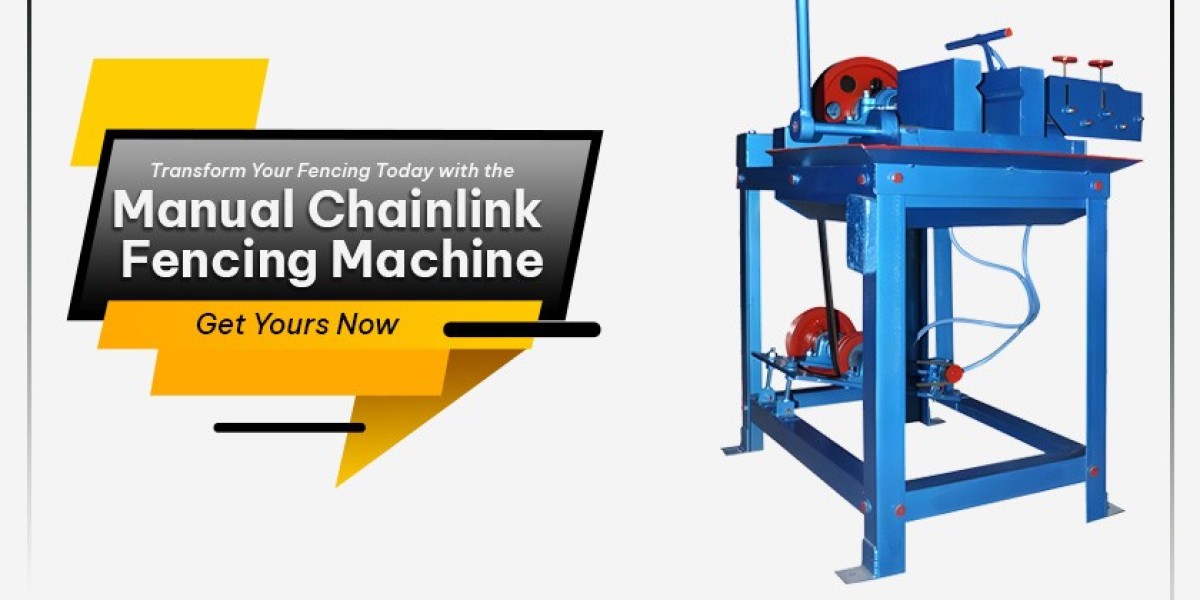Introduction
In the world of fences, the chain-link fence is known for being useful and lasting. A key part in making these fences is the often-unnoticed manual chainlink fencing machine—a tool weaving the detailed pattern that defines security and boundaries. In the market, you can also find its advanced version which has a little bit of automation to reduce production time, that machine is commonly named as a semi-manual chainlink fencing machine.
Chainlink Fencing: A Quick Look
Chain-link fencing, with its diamond-patterned mesh, is a strong choice for securing various spaces, whether at home, work, or in industry. Its mix of toughness and see-through design makes it a preferred choice, setting the stage for the silent yet vital role of the Manual Chainlink Fencing Machine.
Importance of Manual Chainlink Fencing Machines
In a time of machines doing things automatically, manual machines find a place in projects where the human touch meets precision. People operating these machines bring art into the process, making fences that show a mix of human skill and machine accuracy.
Components and Operation
Structural Components
1. Frame and Support Systems
The main part of every Manual Chainlink Fencing Machine is its strong frame, made to handle the challenges of construction sites. Holding this up are systems making sure everything is tight and lined up well, setting the base for fences that last through time and weather challenges.
2. Wire Weaving Mechanism
At the center of the machine is the wire weaving mechanism—a dance of wires making a distinct diamond pattern. Unlike machines that work automatically, the manual touch lets skilled operators change things, making sure the mesh is even and strong. This hands-on work gives each part of the fence its own character.
Operational Dynamics
1. Wire Interlocking Process
The manual chainlink fencing machine changes wire into a mix of connected links. Controlled by skilled hands, wires lock together to make a mesh that marks out boundaries with great strength.
2. Manual Control and Precision
The best thing about these machines is the person using them can control things just right. From making the wires tight to getting them in line, the human touch means each link adds to a strong whole. In tough places, being able to change things becomes crucial, making fences that go beyond what's expected.
Leading Figures in the Field
Top Manufacturers in the Industry
In finding the right fencing gear, aajjo.com, a B2B marketplace, is a helpful place. Here, you can find info about top makers and sellers of a wide range of tools and equipment. Among them are:
- Hindustan Corporation (Rajkot, Gujarat)
- Bharat Machine Engineering (Raipur, Chhattisgarh)
- Hussain Machinery (Nagpur, Maharashtra)
These makers are known for sticking to good quality and bringing new ideas into the world of industrial tools and equipment. Whether you like traditional designs or new materials, they offer a lot of choices to meet different needs.
Conclusion
In the world of building things, the Manual Chainlink Fencing Machine plays a big role, making security and boundaries with precision and art. As we look at its parts and how it works, we also see the leaders in the business—makers whose promise of good quality is like the strong fences they help make. In a world where tech changes, the manual machine stays strong, a light in the world of making fences.








